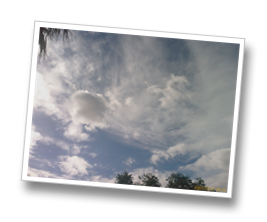Quote of the Day:
Too many people miss the silver lining because they’re expecting gold.
--Maurice Setter
I started reading my novel today. I decided, like previously stated, that I will treat it like any other book, and read it as if it was written by someone else. When giving it more thought, I realised that my motivation for this is two-fold.
The first reason is to obviously find the bits that may require rewriting or at least to form the picture in my head that will allow me to write a second draft.
The second reason is to see if I can place it. I need to decide which genre it fits into, and also what the target audience is. So far, I have read the first 40 pages, and I would probably place it in a young adult fantasy genre. I have known this all along, but keep trying to convince myself that it cannot be.
See, the problem lies in the fact that I am not a huge fantasy reader. Most fantasy bores me to tears. Or so I like to think. But I love the Harry Potter series (who doesn't?), and I also love Terry Pratchett, the Percy Jackson series and a couple of others that fit slap bang into the fantasy genre. But, as a rule of thumb, I don't like fantasy, especially high fantasy and sword-and-sorcery fantasy.
I would prefer to call this science fiction (because I am a bit of a snob, I guess), but realise, for it to qualify, it must contain some component of science. Now, I know there is a fair bit of experimentation going on later in the book, and I do brush on genetics, so I could possibly pass it for Sci-Fi, but I suspect the fantasy component is simply too strong to ignore. Any one else reading it will place it into fantasy without hesitation.
According to Wikipedia, the difference is as follows:
Science fiction differs from fantasy in that, within the context of the story, its imaginary elements are largely possible within scientifically established or scientifically postulated laws of nature (though some elements in a story might still be pure imaginative speculation).
It goes on to say the following about the Sci-Fi genre:
Science fiction is largely based on writing entertainingly and rationally about alternate possibilities in settings that are contrary to known reality. These include:
- A setting in the future, in alternative time lines, or in a historical past that contradicts known facts of history or the archeological record
- A setting in outer space, on other worlds, or involving aliens
- Stories that contradict known or supposed laws of nature
- Stories that involve discovery or application of new scientific principles, such as time travel or psionics, or new technology, such as nanotechnology, faster-than-light travel or robots, or of new and different political or social systems
- Exploring the consequences of such differences is the traditional purpose of science fiction, making it a "literature of ideas"
While it says the following about the Fantasy genre:
Fantasy is a genre that uses magic and other supernatural forms as a primary element of plot, theme, and/or setting. The genre is usually associated with the overall look, feel and themes of the European Middle Ages (including architecture, dress and technology), while the actual setting is often a fictional plane or planet where magic and magical beings are commonplace.
If I use this as a guide, Frank definitely fits firmer into the Sci-Fi genre, but the supernatural component would probably push it into the Fantasy genre. I do find it funny in a humourous kind of way, so I could probably also push for comic fantasy, but don't want to delude myself into believing I am even a close match for Mr Pratchett himself.
Now Playing: Bryan Ferry - Sweet and Lovely


No comments:
Post a Comment